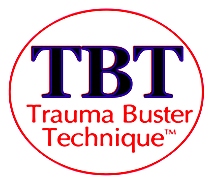Trauma Buster Technique
Die Trauma Buster Technique (TBT) ist eine in der wissenschaftlichen Psychologie unbekannte Methode zur Behandlung posttraumatischer Belastungsstörungen. Die Methode geht auf Rehana Webster zurück, die in Perth (Australien) lebt. Es handelt sich um eine Variante der Klopfakupunkturen und der Methode EFT mit Bezügen zu NLP. Zitierbare Literatur zu dieser Methode ist in wissenschaftlichen Datenbanken oder Google Scholar nicht auffindbar.
Angebotene TBT-Kurse werden an Personen aus allen möglichen Berufgruppen angeboten. Kenntnisse in Psychologie, Psychotherapie oder Medizin werden nicht vorausgesetzt.
Diese wissenschaftlich weder validierte oder in irgendeiner Weise rezipierte Methode wird aktuell (August 2016) von der Heilpraktikerin und TBT-Anwenderin Christine Osiw zur Behandlung von Flüchtlingen in Deutschland beworben. Zielpersonen waren die Mitglieder einer Flüchtlingsgruppe Solingen. Diese sollte die Methode an einem einzigen Wochenende erlernen.[1]
Methode Trauma Buster Technique
Aus Befürwortersicht sei die TBT-Methode sowohl zu einer Selbsthilfe, für die Arbeit mit Einzelnen und auch mit Gruppen (Kinder & Erwachsene) geeignet. Wie bei der Methode EFT und den Klopfakupunkturen wird bei TBT die Körperoberfläche des Kunden längs angenommener Meridiane an so genannten Akupunkturpunkten beklopft.
Rehana Webster
Die Neuseeländerin Rehana Webster hat keine anerkannte Ausbildung als Psychotherapeutin oder Psychiaterin. Sie erwarb 1987 einen Bachelor-Abschluss in Anthropologie (Bachelor of Science, Biological Anthropology) an der University of Toronto in Kanada. Zwischen 1985 und 2003 absolvierte sie zahlreiche Ausbildungen privater Einrichtungen wie in Kinesiologie, EFT, NLP Meta Master, Design Human Engineering oder Ericksonian Modelling.
Nach eigenen Angaben entwickelte sie die TBT-Methode in den 90er Jahren während der Behandlung von Gefängnisinsassen in Neuseeland.[2]
Siehe auch
Quellennachweise
- ↑ https://www.facebook.com/groups/wissenschaft.und.pseudogedoens/permalink/385597584897480/?hc_location=ufi
- ↑ Zitat: Developmental History of TBT by Rehana Webster In the early 1990s I had a contract with the Corrections Department in New Zealand. I saw many clients and what they had in common was extremely violent and abusive childhoods resulting in shock and trauma which they had been unable to eliminate or resolve even after going through the mainstream medical and mental solutions My training in NLP got me curious. I wanted to help these people get over and past their traumas and move into productive lives. What struck me was how they were able to instantly recall traumatic event which were decades old and still produce the same bodily sensations. I started using my NLP skills to figure out how the sufferers were using their brains to recreate the past traumatic events. In order to change those pictures in their heads, I showed them how to change the VAKs (visuals, auditory, kinesthetic) modalities of the pictures. This had immediate and dramatic results. Having trained with Gary Craig to EFT Master level, I observed how Gary also used NLP techniques in his EFT (Gary is also an NLP Master) tapping technique. It was apparent to me the tapping was a powerful bio-mechanical pattern interrupt. Tapping on the meridian points interrupted the neurology enough to reduce the cortisol levels which neutralized the feeling and emotions attached to the traumatic memories. I continued use the tapping along with the NLP and made easy to teach and learn for my clients. The results were astounding in eliminating the symptoms of PTS and the TBT procedure worked 99% of the time. I continued to modify and fine tune the process and have used in in several countries and cultures with amazing results. TBT can be used for any type of trauma, be it large or small, recent or old. Works every time. Rehana Webster, Bsc EFT & NLP Master TBT Developer

